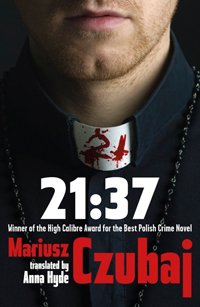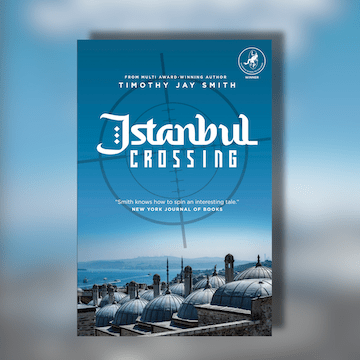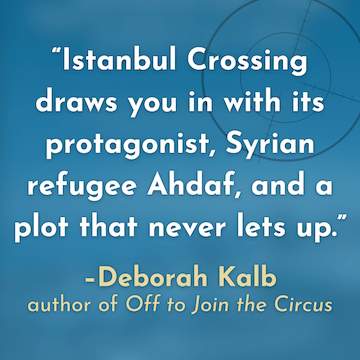 Written by Mariusz Czubaj — What could be the meaning of the mysterious numbers marked in blood on the bodies of two young men found together by the Olympic Centre in Warsaw in April 2007? Well, if you are Polish, the numbers 21 and 37 mean much more: it is the time of death of the Polish Pope John Paul II. From the outset, the title marks out this crime novel as potentially contentious in its home country, attacking the Catholic Church, homophobia, racism and corrupt big business in Poland, all in one fell swoop.
Written by Mariusz Czubaj — What could be the meaning of the mysterious numbers marked in blood on the bodies of two young men found together by the Olympic Centre in Warsaw in April 2007? Well, if you are Polish, the numbers 21 and 37 mean much more: it is the time of death of the Polish Pope John Paul II. From the outset, the title marks out this crime novel as potentially contentious in its home country, attacking the Catholic Church, homophobia, racism and corrupt big business in Poland, all in one fell swoop.
The murder victims turn out to be seminarists at a theological college, and there are strong indications that they may have been gay. Eager to avoid a scandal, the police force in Warsaw calls upon police profiler Rudolf Heinz to help them. Heinz ‘like the ketchup’ is, to his mind at least, the best profiler in the country, trying to bring the scientific rigour of the FBI base in Quantico, Virginia, back to Poland. He is also the single father of a teenage boy, an occasional guitar player, and brown belt in Karate. With a forthright manner, a temper he cannot always control, and a graveyard sense of humour which does not endear him to his colleagues, Heinz remains an outsider both at home and at work.
His climb up the career ladder has stalled, following a serious depression triggered by family tragedy. Despite his confidence, Heinz is also haunted by a previous serial killer case where he made serious mistakes, so he is reluctant to get involved. Things do not improve when he is paired up with unlikely assistant Karloff, who looks like something out of a horror movie, and whose strong-arm interrogation tactics are in direct contrast to the subtler methods favoured by Heinz.
If this sounds like fairly standard crime fiction fodder, that’s because the premise owes a lot to the American crime writers and films – from The Silence of the Lambs to Dirty Harry – mentioned in the book. Yet Czubaj manages to create his own style and sense of place. This is gritty, realistic, almost noir-ish writing, yet suffused with real humour and human warmth. The story itself is well-paced, keeps you guessing, and the back story or personal life of the characters never slows down the investigation. However, it all unravels a little towards the end. For some reason Heinz engages i too much detecting at arm’s length in the final chapters, sitting around and waiting for people to report back to him. This severed the feeling of immediacy and excitement the author had constructed, and also made the denouement rather confusing.
Nevertheless, it’s an intriguing read from a young author who cleverly uses and subverts all the Anglo-Saxon crime memes. If you want to discover a new country on the crime fiction map, this makes for a good introduction to Poland. There are two more Heinz books waiting to be translated and I, for one, think they will be even better than this debut novel.
Stork Press
Print/Kindle
£3.09
CFL Rating: 3 Stars








